The water was glass and the rising trout were raindrops thrown against it during a storm. The fish ate seemingly at random, ignoring my fly completely. I’d been in this situation too many times to count, and I was beginning to think I’d never get the hang of this whole fly fishing thing.
Still, not catching fish was better than English class, which is where I should’ve been. Instead, I slipped out of high school between classes and drove up the canyon. I needed to see the fish that I couldn’t quit thinking about. I needed to solve the puzzle, to put it all together and catch fish on a dry fly.
I was 16 and a diehard worm-dunker, but I had an interest in fly fishing. My dad fly fished a lot when I was young, but his time on the water had become nonexistent with four kids and a university job. He never had enough time to teach me the finer points of it, and I was enough of a know-it-all that I’d have been an awful student. Fly fishing looked intriguing, though, and I’d heard enough of my dad’s stories to pique my curiosity. I wanted to figure it out on my own, if only to say that I’d tried fly fishing, hadn’t understood the fuss, and gone quietly back to my worms and PowerBait.
So, I hadn’t touched my Ugly Stik or a treble hook all summer. Not even during scout camp, when my buddies reeled in big trout after big trout, and I spent my time picking flies from trees. On the rare occasion I put a fly in the water, the fish did what they always seemed to do—ignored it.
I didn’t catch any fish that day, and I didn’t the next time I skipped class, either. It wasn’t until late fall, when the canyon was almost inaccessible due to snow, that I finally got a five-inch rainbow to eat my caddis. I’ve caught many other fish since then, but few have felt as satisfying. That wild rainbow was the embodiment of success, failure, perseverance, dedication, stubbornness. To quote Whitman, that fish contained multitudes. Catching that fish felt so good because, like anything worth having, I had worked hard for it.
Fly fishing is unique in that there’s no shortcut to success. You can get lucky, sure, but to becoming a self-sufficient angler takes a certain amount of knowledge and skill. That’s not to say you’ll learn everything. You won’t—you just add to your base with every day you spend on the water.
The best anglers are the ones who don’t look for shortcuts, who know that their success tomorrow hinges on their failures yesterday. That’s not an easy mindset to achieve, and it’s something you really appreciate the more you learn from your mistakes.
When you’re just starting out in fly fishing, and all you have are mistakes (maybe a win or two in the form of a good cast or a knot that worked on your first try), it’s easy to feel frustrated when you ask for help. That plea is often met with some variation of the phrase, “go figure it out on your own. I did!”
That’s not the most effective way to explain to newcomers that fly fishing is hard and the only way through the learning curve is tough days on the water. So, it’s understandable that fly fishers have earned a reputation for gatekeeping, even when that’s not our intention. Yes, there’s still an “I-got-mine-screw-everyone-else” attitude in some corners of this sport, but that’s rare to run into these days.
On the other hand, a new fly fisher has never had it easier than they do today. The amount of fantastic instructional material out there is incredible, and fly fishing is lucky to have such a wealth of great educators. With centuries of collected angling knowledge literally at your fingertips, you’re set up for success in a way that I wasn’t, my dad wasn’t, and most of my fishing buddies weren’t, either.
But you still have to work for it. There are no shortcuts.
I spent three years teaching high school English, and the last two years with Ventures Fly Co, where I produce our weekly educational podcast and help out with our fly fishing masterclass videos on YouTube. I wouldn’t call myself an educational expert, but I’ve learned a bit about learning during that time.
The lessons we remember most are the ones for which we worked the hardest. Once, while teaching in rural Wyoming, I had a student who was convinced he couldn’t write. He told me, on the first day of school, he wouldn’t be writing any papers in my class because he just couldn’t write.
When the end of term rolled around and I handed out the prompt for the final essay, I could tell this student felt stuck between a rock and a hard place. He’d made a bold statement on day one, but over the next few months, he’d managed a few paragraphs’ worth of writing, and they weren’t half-bad. Teenage boys are worse at swallowing their pride than grown boys, though, so I asked him to write me an essay about his favorite topic — diesel pickup trucks.
The only thing I’ll take credit for with this student was challenging him. I told him he had to write a paper, and that I knew he could do a good job. I held him to it, and his final essay was one of the best I ever graded. Not from a technical standpoint, but because it represented an enormous amount of hard work that paid off. The kid took advantage of his time in class, all the resources available to high school students these days, and did something he could be proud of.
Fly fishing is the same way.
So, if you ask for help and feel like you’re being told “tough crap, figure it out,” remember that what most anglers are probably trying to say is this: fly fishing is hard. You have to learn through failure. But it’s worth it. When you work for something, it’s that much more meaningful when you achieve it.

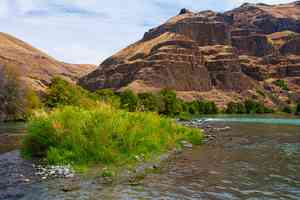

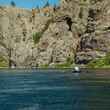
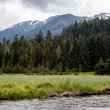
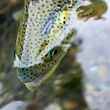
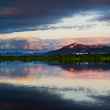
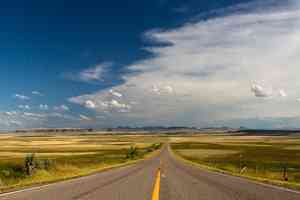

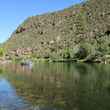

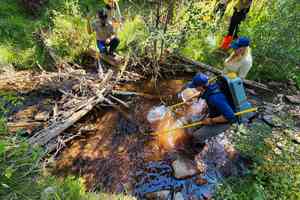

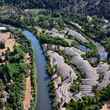
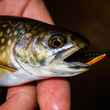
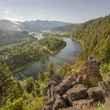

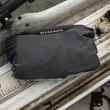
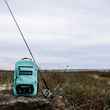
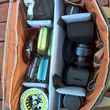
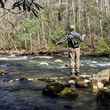



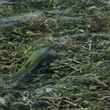
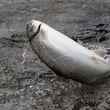
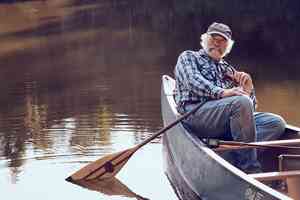
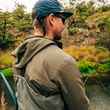
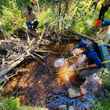
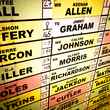
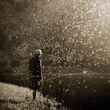
Comments